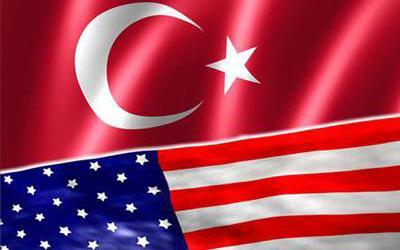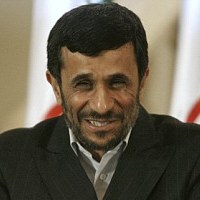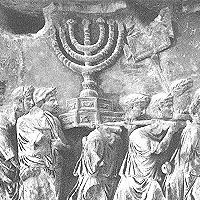![]()
Wed, Nov 21, 2012 | By M. Kemal Kaya and Halil M. Karaveli
This article was first published in the Turkey Analyst, vol. 5 no. 22 (www.turkeyanalyst.org), a biweekly publication of the Central Asia-Caucasus Institute & Silk Road Studies Program Joint Center. © Central Asia-Caucasus Institute & Silk Road Studies Program Joint Center, 2012.
The Turkish presumption to be a “model” for the Middle East will be undermined if the United States were to withdraw from the affairs of the region. Absent a strong U.S. involvement, Turkey risks being pulled into the orbit of the Muslim Brotherhood instead of serving as a model that combines Islam and liberal values. That is illustrated by Turkey’s Syria policy. Turkey is a crucial partner for the U.S., but it will only be the “model” that Washington hopes and needs, if the U.S. itself remains committed to the Middle East.
Background
Since the end of the Cold War, developments in the Balkans, the Caucasus, Central Asia and the Middle East have provided the ground for continued strategic cooperation between the United States and Turkey; concurrently, the two NATO allies have been at odds over issues such as Iraq and most recently Iran. However, despite the frictions that have been generated by these disagreements, the U.S. and Turkey have succeeded in maintaining their close relation, and they have not let their points of disagreement poison the atmosphere among them. During President Barack Obama’s first term, a close working relationship evolved between him and Turkish Prime Minister Recep Tayyip Erdoğan.
When Turkey, then a holder of a temporary seat on the U.N. Security Council, in 2010 voted against imposing sanctions on Iran, the relationship with the United States was adversely affected; however, when Turkey subsequently agreed to host a radar station as part of NATO’s missile shield, it was essentially mended. Nonetheless, Turkey is not participating fully in the common Western front against Iran, as it has not imposed sanctions on a neighbor with whom it enjoys a relation of economic interdependence. Meanwhile, the hostile nature of the Turkish-Israeli relations is also a complicating factor between Turkey and the United States.
Even though the Obama administration is prosecuting a Pacific pivot, the instability that reigns in the Middle East will ensure that the region maintains a prominent place on the United States’ foreign policy agenda. The unresolved crisis over Iran’s nuclear ambitions, the Israeli-Palestinian conflict, Syria, Iraq and Afghanistan are all issues that have an impact on Turkish-American relations. In addition to the conflicts in the wider Middle East, developments in the Caucasus, the Caspian basin and Russia, with energy issues looming large, will also provide grounds for cooperation between Ankara and Washington.
However, the Iranian issue, the Syrian crisis and Turkish-Israeli tensions are going to be problematic for the two allies to handle. In addition, the approaching centennial of the ethnic cleansing of the Armenians from Anatolia in 1915 is destined to cause further friction, as pressures on the U.S. Congress to pass a genocide resolution can be expected to mount.
Concerning the Iranian nuclear issue, there is no disagreement between Turkey and the U.S. as to the principle that Iran should not become a nuclear armed power; however, there is disagreement concerning how that outcome is to be prevented. Even though the Obama administration is set to pursue the attempts to persuade Tehran from withdrawing from the nuclear threshold by further tightening sanctions and by applying diplomatic pressure, it has also made clear that the military option is on the table. Turkey, on the other hand, wants to avoid another war in its neighborhood. Since Turkey is not even participating in the Western economic sanctions against Iran, it is most unlikely that it would take part in a military operation against Iran. Most probably, such a development would create tensions between Turkey and the U.S. just as the American invasion of Iraq did.
In the Syrian crisis, Ankara and Washington are in agreement that President Bashar al-Assad must go. But the Turkish and American views of a post-Assad Syria do not converge. Turkey has been the main backer and sponsor of the Syrian National Council (SNC), which aspired to be the leader of the Syrian opposition, although it is dominated by the Muslim Brotherhood, which cannot claim to command anything that resembles majority support among the Syrian population. Indeed, after U.S. Secretary of State Hillary Clinton sharply criticized and disavowed the SNC, a new, supposedly more inclusive opposition body was recently set up at an opposition gathering in Doha. Turkey did not make its displeasure with the American disavowal of its creation, the SNC, public; instead, Ankara encouraged the SNC to go along with the change and take its place within the new body. Indeed, the SNC in fact wields considerable and disproportionate influence within the new opposition council, which raises the question if the U.S. initiative will achieve the desired outcome of creating an opposition that is not Islamist-dominated. And the question still remains whether Ankara will help Washington to bring about a pluralistic post-Assad Syria. The determination of the Turkish government to promote the Muslim Brotherhood, as well as Turkey’s fierce opposition to Kurdish autonomy in parts of northern Syria has the potential to put Turkish-American relations to test.
Implications
The developments in the Middle East in the wake of the Arab upheavals have come to illustrate the ambivalence of Turkey: on the one hand, Turkey aspires to present itself as a “model”, of democracy and economic development; and as it seeks to project power, it ultimately draws on its participation in a Western security and economic system. It is the very fact that Turkey historically enjoys a special relationship with the democratic West, combining Islam, democracy and market economy, that sustains whatever soft power it has to inspire potential, budding democracies in the region.
But on the other hand, Turkey’s ruling Justice and Development Party (AKP) is encouraged by the rise of the Muslim Brotherhood in the region; helping the Brotherhood to power in Damascus has indeed been the main motivation of Turkey’s Syrian regime change policy. Thus, the question becomes who will inspire whom — is Turkey going to help bring about a moderation of the rising Islamism in the region, or is the rise of the Brotherhood on the contrary going to incite the AKP to revert to its Islamist roots, a tendency that is already visible? It can be assumed that the policies that Brotherhood governments in the Middle East — today in Egypt, tomorrow perhaps also in Syria — elect to pursue are going to have an impact on the AKP, as these Sunni movements share much common intellectual ground.
On an early stage, Erdoğan did make statements that encouraged Egyptians and others to emulate Turkey’s example of “secularism”; that was not something that went down well with audiences in Cairo, and Erdoğan has not pursued this line, perhaps because he concluded that posing as the champion of secularism was not a particularly rewarding tactic, even though Turkish “secularism” has in practice privileged Sunni Islam.
It is too early to predict whether Erdoğan’s Turkey is going to inspire related, ascendant political movements in the Middle East to reform themselves and their countries, or if it will be the other way around, with these movements providing inspiration for Turkey. But there is reason to suspect that the Islamic movements in the region are ultimately going to remain faithful to their historic legacies, ushering in another form of authoritarianism instead of a democratic, liberal order. Indeed, the Turkish example is itself less than reassuring on this account.
The Turkish presumption to be a “model” will be further undermined if the United States were to withdraw from the affairs of the Middle East; without a strong U.S. involvement, Turkey risks being pulled into the orbit of the Muslim Brotherhood. Indeed, the Syrian example, where Washington seeks to counter the influence of the Brotherhood which Ankara has privileged serves as an illustration of the importance of U.S. involvement. It can be assumed that the American disavowal of the SNC displeased Turkey, but it is nonetheless likely that Washington’s determination to midwife a non-Islamist Syria will have a sobering effect on Ankara’s calculus, just as was the case concerning Iran; when push came to show, Turkey joined the U.S. effort to contain Iran, by agreeing to host a crucial part of NATO’s missile shield. But absent Washington’s involvement, Ankara is certainly not going to be encouraged to abandon its sponsorship of the Brotherhood.
Conclusions
Even though the Obama administration is intent on reorienting U.S. strategy, giving priority to the Pacific region, the Middle East is sure to retain its prominent place on the U.S. foreign policy agenda. President Barack Obama and Prime Minister Recep Tayyip Erdoğan have enjoyed a close working relationship, and Turkey will remain a crucial partner for the United States in Middle Eastern affairs. But the issue of Iran and the crisis in Syria have the potential to put the U.S.-Turkish relation — and the Obama-Erdoğan relationship — to test.
If the political, diplomatic and economic pressures put in place under U.S. leadership fail to yield the desired outcome, the Iranian nuclear issue may cause new tensions between the United States and Turkey, as it is highly unlikely that Ankara will be accommodating if Washington resorts to military action against Iran. Syria meanwhile, demonstrates how important it is that the U.S. remains involved in the Middle East; Washington’s attempt to midwife a more inclusive Syrian opposition that is not dominated by Islamists, may have challenged Ankara — whose creation, the Muslim Brotherhood dominated Syrian National Council is now submerged within a broader opposition grouping — but ultimately it may have the effect of encouraging Turkey to revise its calculus.
If on the other hand the United States were to withdraw from the Middle East, Turkey would likely be drawn into the orbit of the ascendant Muslim Brotherhood. What makes Turkey special as a “model” in the Middle East is — alongside its history — the relationship that it enjoys with the West; but it cannot represent the West alone. As the Syrian example clearly illustrates, the United States cannot outsource regime change policies to Turkey; left to its own devices, an AKP-ruled Turkey will invariably be tempted to project power in the region in homegrown ideological terms. Turkey is a crucial partner for the U.S., but it will only be the “model” that Washington hopes and needs, if the U.S. itself remains committed to the Middle East.
Halil M. Karaveli is Senior Fellow with the Central Asia-Caucasus Institute & Silk Road Studies Program Joint Center, and Editor of the Turkey Analyst. M. Kemal Kaya is a Nonresident Senior Fellow with the Center.



 RSS
RSS













[…] government is still determined to maintain close ties with the United States (See Turkey Analyst, November 21, 2012 issue), therefore, some form of reconciliation with the Jewish state may be essential for renewing and […]